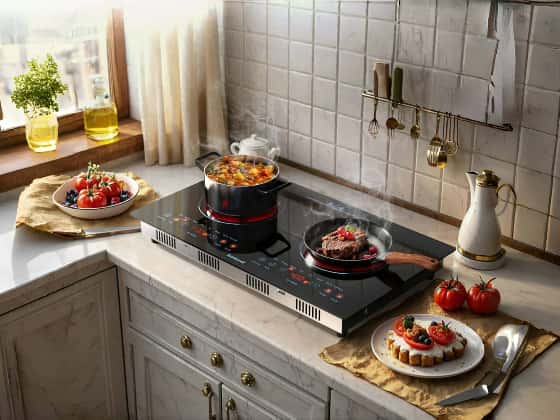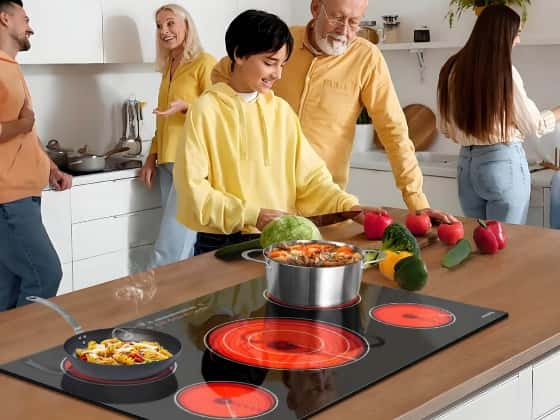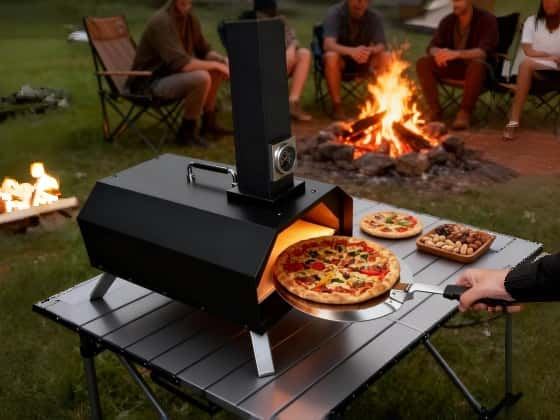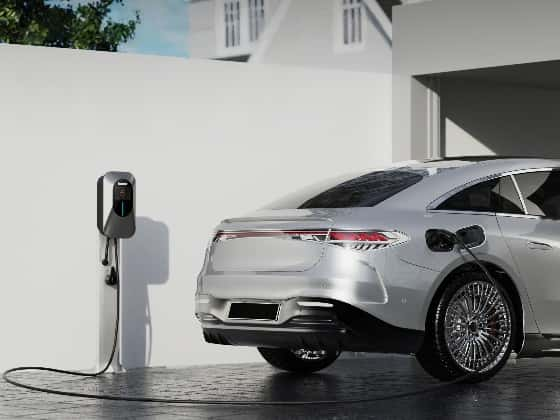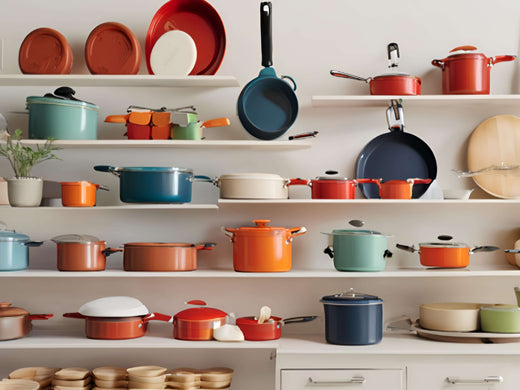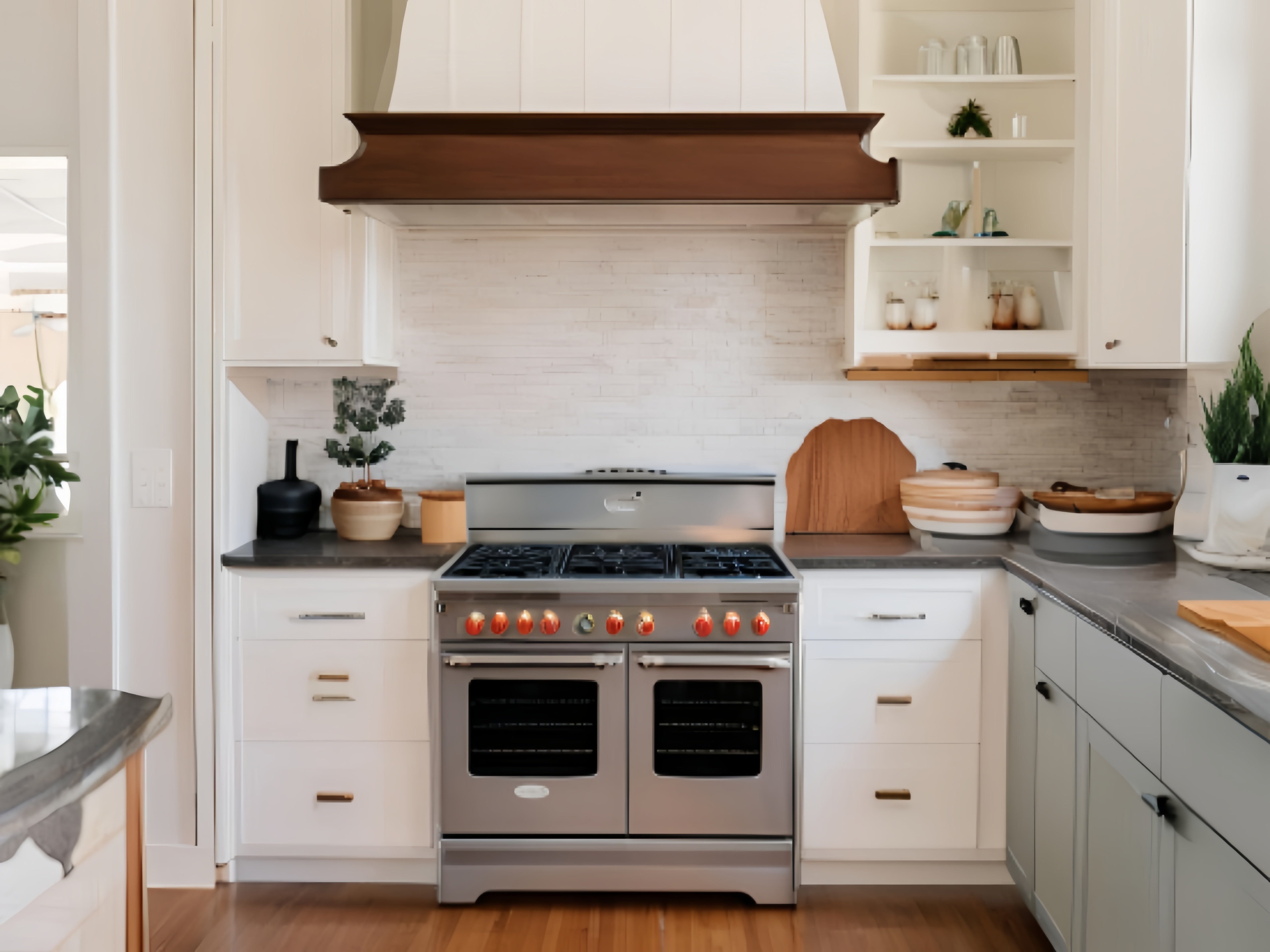
Introduction to gas cooktops and electric induction cooktop
For years, gas cooktops have been a staple in many kitchens, offering precise temperature control and instant heat response. However, as technology advances, electric induction cooktop have emerged as a compelling alternative, promising energy efficiency, safety, and sleek design.In this article, we'll delve into the world of gas cooktops and electric induction cooktop, exploring the advantages and drawbacks of each, as well as the costs and considerations involved in making the switch.
Cost considerations when switching from gas to electric induction cooktop
Cooktop Purchase: Electric induction cooktop can be more expensive than their gas counterparts, with prices ranging from a few hundred dollars for basic models to several thousand for high-end, feature-packed units.
Installation Costs: Depending on your existing kitchen setup, you may need to factor in the cost of professional installation. This can include electrical work, countertop modifications, and potentially upgrading your home's electrical panel to accommodate the increased power demands of an induction cooktop.
Cookware Compatibility: Induction cooktops require the use of magnetic cookware, such as cast iron or stainless steel with a magnetic base. If your existing cookware is not compatible, you may need to invest in new pots and pans specifically designed for induction cooking.
Energy Costs: While induction cooktops are more energy-efficient, the cost of electricity in your area may impact the long-term savings compared to gas. It's essential to consider your local utility rates and usage patterns to determine the potential cost savings over time.

Installation process and requirements for electric induction cooktop
Electrical Requirements: Induction cooktops typically require a dedicated 240-volt circuit and a minimum amperage rating, often ranging from 30 to 50 amps. This may necessitate upgrades to your home's electrical panel or wiring if your existing setup is insufficient.
Countertop Modifications: Depending on the size and configuration of your new induction cooktop, you may need to modify your existing countertop to accommodate the appliance. This can involve cutting or resizing the countertop to create the appropriate opening.
Ventilation Requirements: While induction cooktops produce less heat than gas cooktops, proper ventilation is still essential to remove cooking odors and steam. You may need to install or upgrade your kitchen's ventilation system, such as a range hood or downdraft vent.
Customer reviews and experiences with electric induction cooktop
Here's a summary of some common customer reviews and experiences:
Cooking Performance: Many users praise the precise temperature control and rapid heating capabilities of induction cooktops, allowing for consistent and efficient cooking results.
Easy Cleaning: The smooth, flat surface of induction cooktops makes them easier to clean compared to gas cooktops with grates and burners. Spills and splatters can be wiped away effortlessly, saving time and effort.
Energy Savings: Numerous customers have reported significant energy savings after switching to induction cooktops, resulting in lower utility bills and a reduced environmental impact.
Sleek Design: The modern and minimalist appearance of induction cooktops is often praised, seamlessly integrating into contemporary kitchen designs.
Learning Curve: Some users have noted a slight learning curve when transitioning from gas or traditional electric cooktops, as the cooking experience and heat response can differ slightly with induction technology.
Cookware Compatibility: While most users appreciate the cookware compatibility requirements, some have expressed frustration with the need to replace non-compatible cookware, adding to the overall cost of the transition.
Karinear Built in Induction Cooktop
Karinear built in induction cooktop has no plug and is a Class II appliance with a two-pin cable that must be connected to a single-phase circuit.Built in induction cooktop occupies a small space and is equipped with black glass, which looks modern and style, perfect for any kitchen countertop.This built in induction cooktop has a fan inside, which can reduce the temperature of the heating plate and increase safety. It doesn't make too much noise and won't affect your mood.
Conclusion
After exploring the various aspects of electric induction cooktop, it's clear that making the switch can be a worthwhile investment for many households.However, it's important to carefully evaluate your specific needs, budget, and kitchen setup to determine if an electric induction cooktop is the right choice for you.

